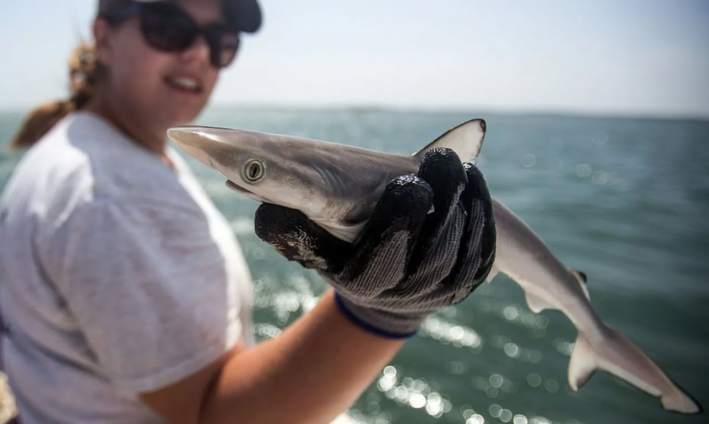Sharks off the coast of Brazil have tested positive for cocaine, scientists say.
Marine biologists tested 13 Brazilian sharpnose sharks taken from the shores near Rio de Janeiro and found they tested for high levels of cocaine in their muscles and livers.
The concentrations were as much as 100 times higher than previously reported for other aquatic creatures.
The research, carried out by the Oswaldo Cruz Foundation, is the first to find the presence of cocaine in sharks.
Experts believe that cocaine is making its way into the waters via illegal labs where the drug is manufactured or through the excrement of drug users.
Packs of cocaine lost or dumped by traffickers at sea could also be a source, though this is less likely, researchers say.
Sara Novais, a marine eco-toxicologist at the Marine and Environmental Sciences Centre of the Polytechnic University of Leiria, told Science magazine that the findings are “very important and potentially worrying”.
All females in the study were pregnant, but the consequences of cocaine exposure for the foetuses are unknown, experts say.
Further research is required to ascertain whether cocaine is changing the behaviour of the sharks.
However, previous research has shown that drugs were likely to have similar effects on animals as they do on humans.
Last year, chemical compounds including benzoylecgonine, which is produced by the liver after cocaine use, were found in seawater samples collected off the south coast of England.


